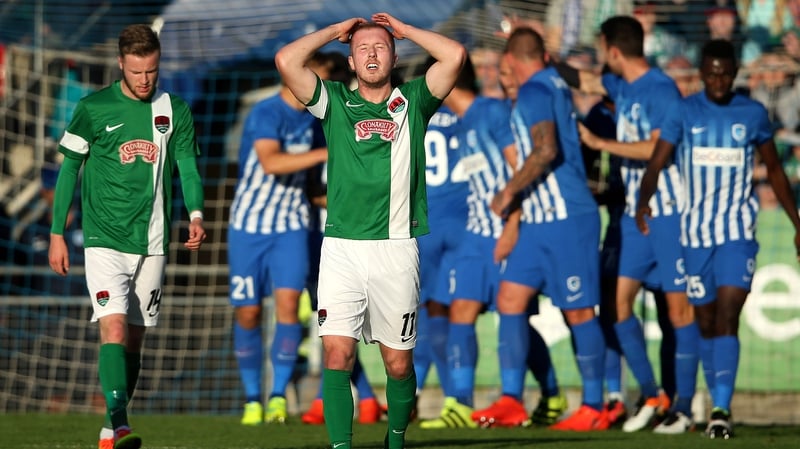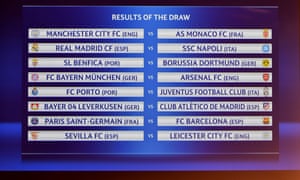 |
| Genk score a killer away goal in Cork |
It was a sogey, windy night in Cork on July 21st 2016, however it was also a momentus evening as Cork City had just eliminated Swedish cup holders BK Häcken from the Europa League. We had set up a dual with Belgians K.R.C Genk, or so we thought. They were facing Montenegrin side FK Budućnost. Genk were 2-0 up from the first leg but the return leg was gone to penalties after the hosts from the Adriatic roared back with first half goals. Genk rode their luck as they also were reduced to ten men with Bernard Kumordzi seeing red late on. In the shooutout missed spot kicks from Momcilo Raspopović and Luka Mirković saw Genk squeeze through. There was to be no amending flights on my part to Podgorica.
After those events it was City v Genk in a two legged tie. I can still remember that first leg in the Luminus Arena. I was actually gutted City didn't take a draw. The game was lost to a first half goal from Leon Bailey, more on him later. Certainly the best City performance that I can remember. My pre-match prediction of 6-0 Genk thankfully not coming to fruition. Genk unfortunately were clinical in the second leg at a sunny Turner's Cross. Goals from Thomas Buffel, a lovely finish, and Sebastien Dewaest, a powerful header saw them through. We did score later in the game through captain Alan Bennett but bowed out 3-1 on aggregate.
City's European run was over and Genk's was to continue for months yet. However I don't think even the most ardent Genk fans could foresee the events of the next eight months unfolding.
Genk would make the group stage by despatching Lokomotiva Zagreb, or if you want to be cynical Dinamo Zagreb's B team, 4-2 on aggregate in the next round. It would be in the group stage that Genk would shock a quality Athletic Bilbao side with a 2-0 win at the Luminus Arena. A 5-3 defeat at San Mamés barria would hit headlines with Aritz Aduriz scoring all five home goals but Jamaican winger Leon Bailey scored a stunner to alert Europe of his talents. In a group also featuring Italians Sassuolo and Austrian side Rapid Wien, Genk would finish top, comfortably going through to the final thirty-two in the new year.
They would be paired with fellow surprise package Astra Giurgiu of Romania but before that tie there was some big off the pitch changes. Firstly manager Peter Maes was sacked for very inconcistent domestic form. Form which left them in mid-table in the Pro League despite their polar opposite European form. Taking over was Albert Stuivenberg but he would be dealt two big blows in the January transfer window. Midfield powerhouse Wilfred Ndidi was sold for £15 million and then on the final day of the window, Leon Bailey was sold to Bayer Leverkusen for £12 million.
The appointment of Stuivenberg would lead to an improvement in domestic results and it would also see Genk progress further in the Europa League. A 2-2 draw in Romania was followed up by a 1-0 success at the Luminus Arena. Genk were now into the last sixteen and the draw would produce a very familiar opponent. An all-Belgian tie as Genk were pitted against K.A.A Gent.
Genk took full of advantage of that familiarity hitting Gent on the counter. A resounding 5-2 win away which also saw Gent reduced to ten men, providing the platform for the passage through to the last eight. A second leg draw completed the job and now the belief and confidence was sky high if it wasn't already.
The quarter-final draw made the day after that second leg draw with Gent produced anothet trip to Spain, this time to Celta de Vigo. A place in the semi-final of the Europa League at stake. A prospect that few would've envisioned. The first leg is scheduled for April 13th at the Estádio Balaidos with the home leg a week later.
To think this run was all built upon after those two missed penalties in Montenegro on that humid night back in July. Fine margins.

